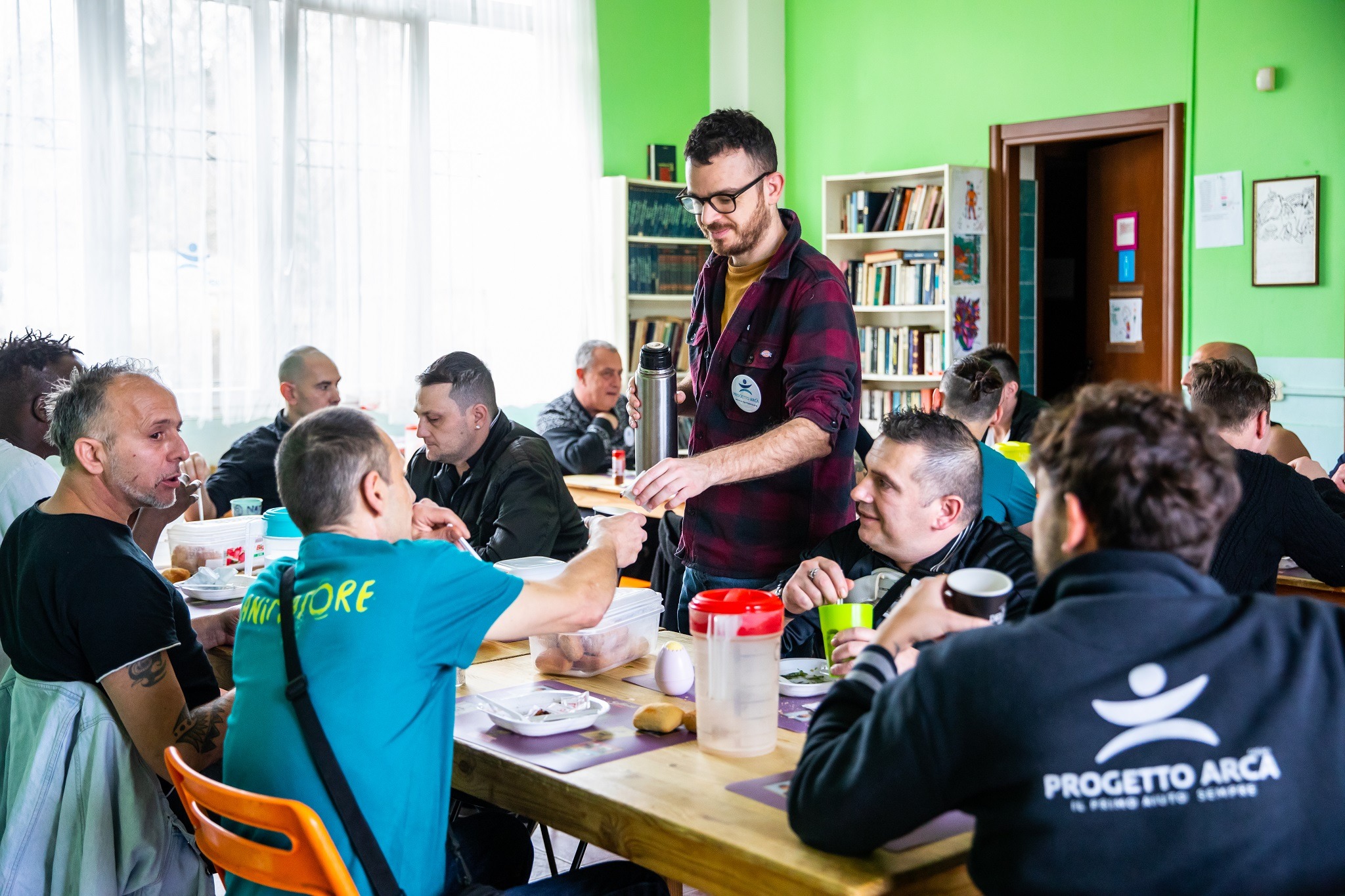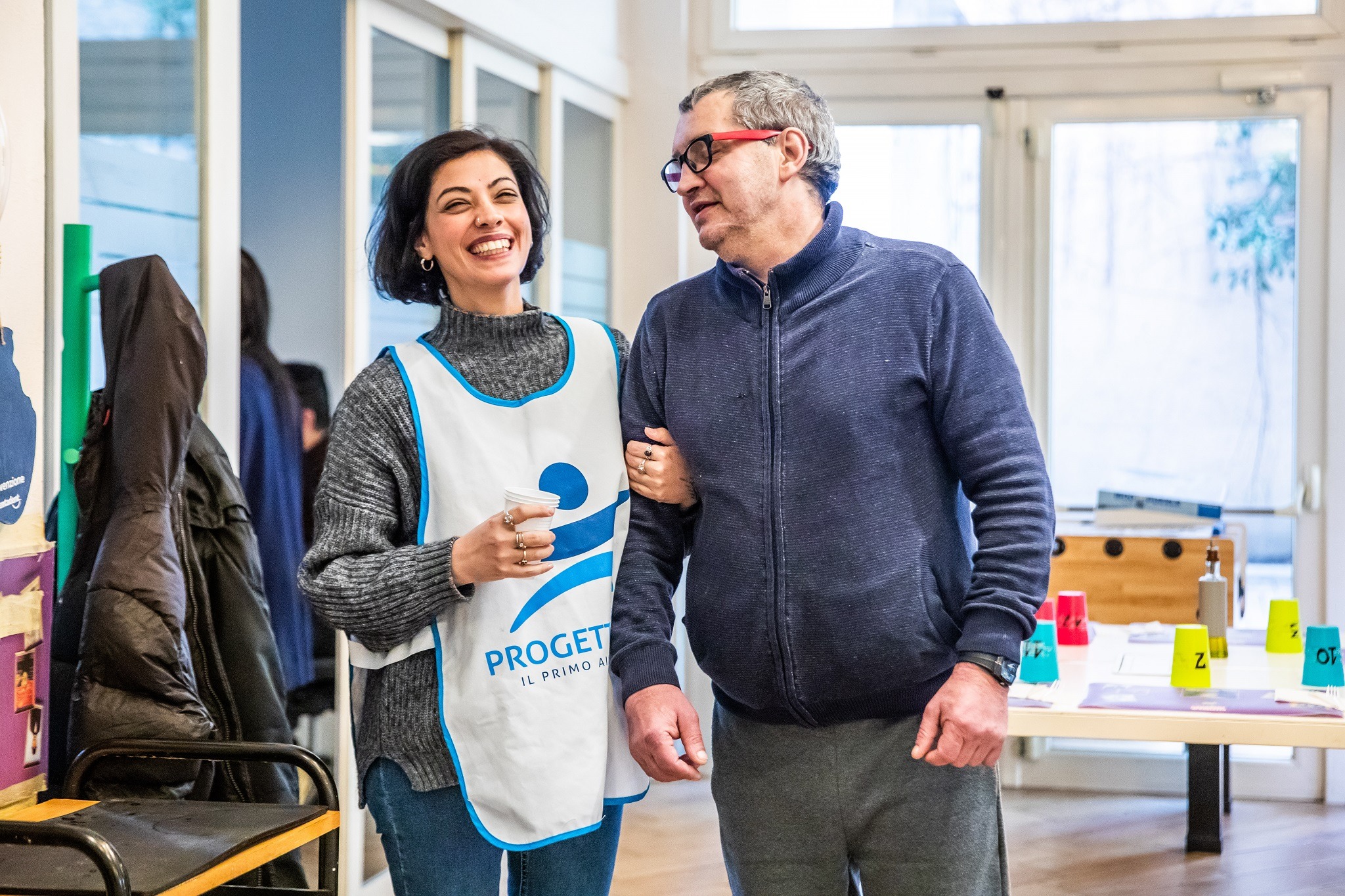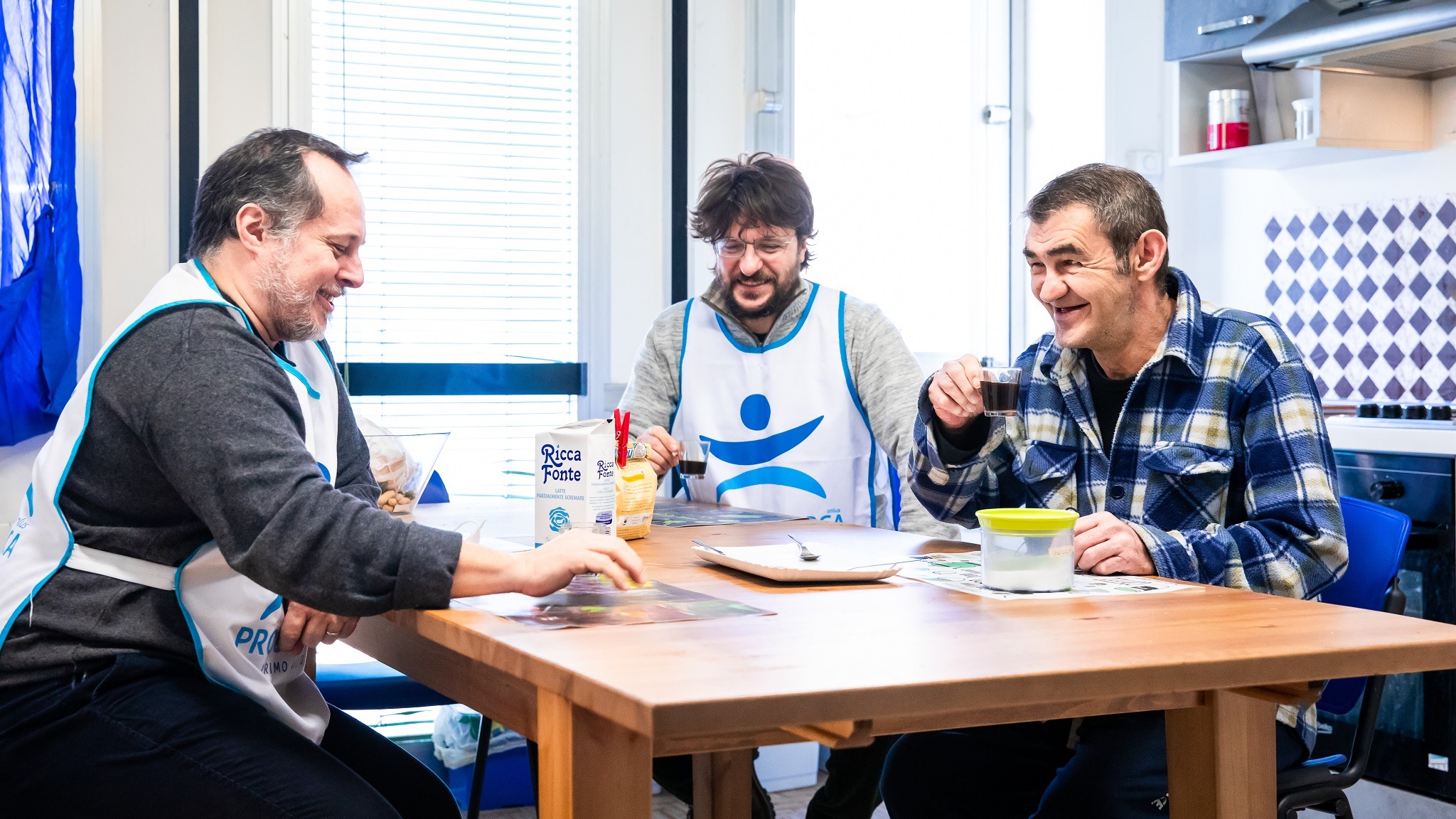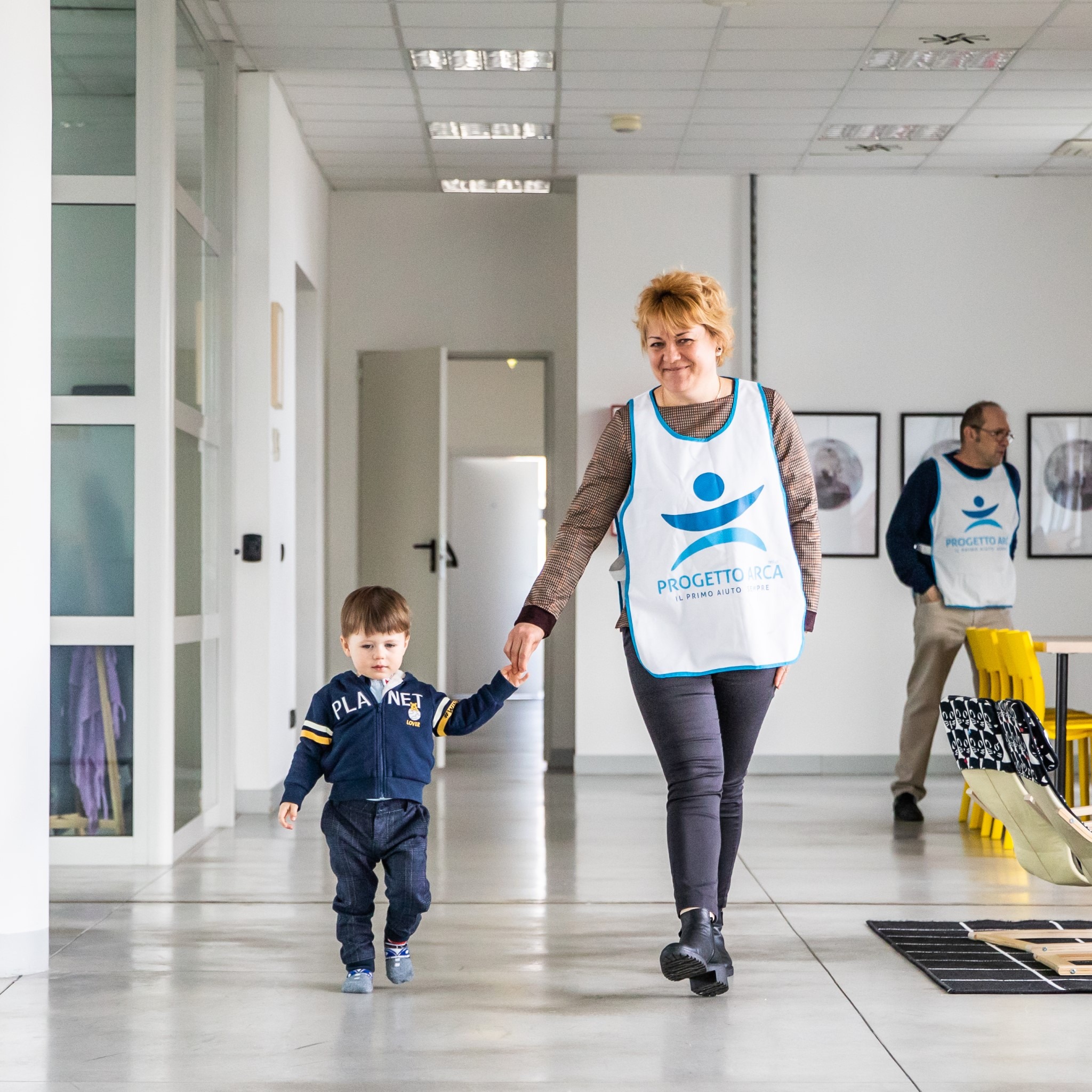
From Addiction to Building a New Life Path
The area of addiction was our first field of intervention, and over time, Progetto Arca has developed a complete chain of dedicated services.
Night shelter
Substance abuse, whether alcohol or drugs, can lead to the breakdown of social and family ties, resulting in the inability to maintain a home or a job. Other times, dependency is a direct consequence of homelessness. The lines are rarely clear, and regardless of how it begins, an untreated addiction makes leaving the streets especially difficult.
In agreement with ATS Città Metropolitana di Milano, since 2000 our Night Shelter has opened its doors every evening to homeless people who actively use substances, responding to essential needs that are often denied to those living on the streets. Since 2024, the Centre has found a new home in the multifacility in via Fantoli in Milan.
The care taken in designing the spaces, from the rooms to the common areas, embodies our idea of beauty as a promise of change.
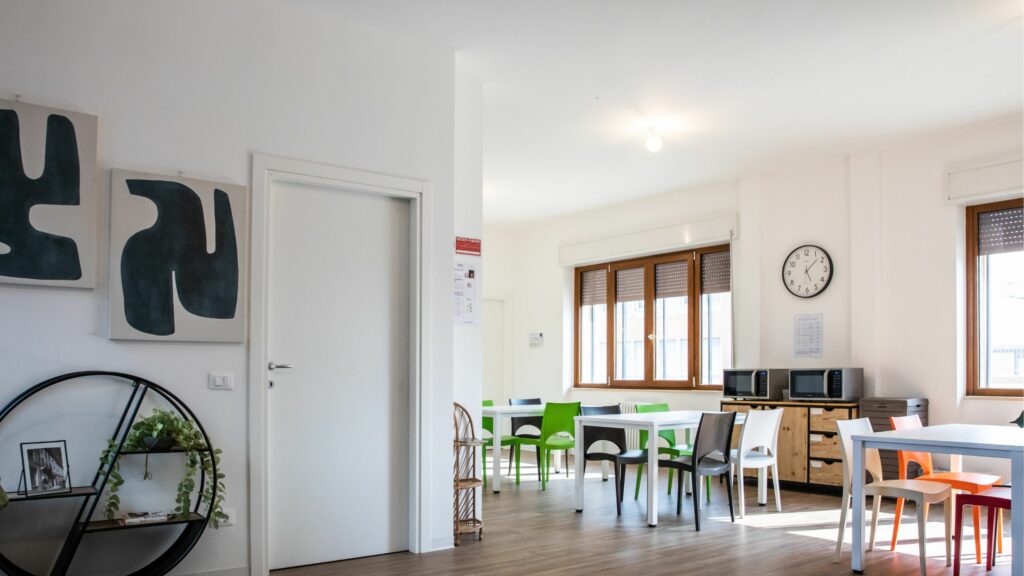
We offer a safe environment and a refuge from the streets to those with certified substance or alcohol dependency who have nowhere else to go.
A dinner and breakfast, a shower, clean clothes, and the support of qualified professionals: our shelter starts by addressing the most basic needs to create the foundation for gradually moving toward addiction treatment and social reintegration through specialized services.
Residential Socio-Healthcare Communities
To those who choose to undertake a recovery program, we offer two residential communities, accredited by Regione Lombardia and partnered with ATS Città Metropolitana di Milano.
The 34 residents of these facilities receive support from educational teams who guide them through the process of overcoming addiction, improving their physical and mental well-being, and finding the personal motivation necessary to take a new direction in life..
Establishing a regular sleep routine, self-care, maintaining the spaces where they live, cooking for fellow residents, and engaging in outdoor and community recreational activities are all moments through which individuals regain a sense of self-worth, a sense of time, environment, and relationships.
Accomodation in co-housing
A third type of service is low-intensity residential assistance, aimed at individuals with a long history of substance or alcohol dependency and several years of therapeutic or community experiences, some more successful than others.
In our four apartments, which host 18 residents, we experiment with a lightweight residential model for individuals who, due to health conditions, precarious housing situations, and insufficient income, are unable to establish true independence and lack a primary network of emotional support.o.
The program lasts 18 months, renewable, during which the resident lives in an autonomous co-housing environment and is supported by a multidisciplinary team, with a central role played by an educator.
Through personalized support, alongside the development of a network of local support services, the goal is to restore the individual’s physical and mental well-being and lay the foundation for them to regain economic and housing independence, consolidating and maintaining it over time.
I spent the last two years living in a garage. During the day, I worked in the province of Piacenza, and to get there, I waited at the station overnight.
Luca
When you live like that, even if you’ve beaten the drugs, not even a job can save you.
Then, just before Christmas, I moved into a house with Progetto Arca, and so many things changed. The most important thing is that I’ve reconnected with my son and my ex-partner. The life I was living made me lose them as well.
Now, I see my future like this: a home and my family.

